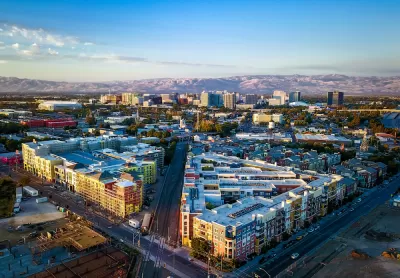Only a fraction of cities interested in using generative artificial intelligence to enhance how they operate have made moves to adopt to the technology. What are the obstacles to adoption and what can be learned from local governments who’ve already taken the leap?

Sara Al Hudaithy and Anu Devi for the World Economic Forum have pulled together an excellent article on the use of generative artificial intelligence by local governments worldwide, which they describe as being in the “exploratory phase” as many formulate policies to regulate its use. They cite a 2023 Bloomberg Philanthropies survey of 100 mayors and city staff worldwide in which 69 percent said they were either currently exploring or testing GenAI capabilities. “These city officials are particularly interested in understanding how GenAI can help enhance citizen engagement, advance data-driven policy-making, optimize services and resource allocation, and streamline administrative processes and communication. In addition, they are interested in determining how GenAI can enhance city services and efficiency, especially in areas such as traffic and transportation, infrastructure, public safety, environmental issues, education and administrative tasks.” However, only 2 percent have actively adopted the technology.
The rest of the article explores the activities of that 2 percent, including links to AI policies and guidelines of cities like Seattle, San Jose, Boston, New York, Amsterdam, Helsinki, as well as the potential of GenAI once cities exploration and adoption grows beyond its current “infancy” stage and cities are able to identify where it can make the most difference and overcome various obstacles. “The potential of combining unbiased and large datasets with machine learning and other technological capabilities can bring significant benefits to society, governments and businesses. However, this potential can only be realized when risks and unintended consequences, both short- and long-term, are accounted for and addressed through governance frameworks designed to minimize harm. Additionally, finding cost-effective and practical use cases and learnings for cities is essential for successful adoption,” Al Hudaithy and Devi write.
FULL STORY: Cities are sizing up the generative AI skyline. But first, they have to establish the ground rules

Planetizen Federal Action Tracker
A weekly monitor of how Trump’s orders and actions are impacting planners and planning in America.

San Francisco's School District Spent $105M To Build Affordable Housing for Teachers — And That's Just the Beginning
SFUSD joins a growing list of school districts using their land holdings to address housing affordability challenges faced by their own employees.

The Tiny, Adorable $7,000 Car Turning Japan Onto EVs
The single seat Mibot charges from a regular plug as quickly as an iPad, and is about half the price of an average EV.

With Protected Lanes, 460% More People Commute by Bike
For those needing more ammo, more data proving what we already knew is here.

In More Metros Than You’d Think, Suburbs are Now More Expensive Than the City
If you're moving to the burbs to save on square footage, data shows you should think again.

The States Losing Rural Delivery Rooms at an Alarming Pace
In some states, as few as 9% of rural hospitals still deliver babies. As a result, rising pre-term births, no adequate pre-term care and "harrowing" close calls are a growing reality.
Urban Design for Planners 1: Software Tools
This six-course series explores essential urban design concepts using open source software and equips planners with the tools they need to participate fully in the urban design process.
Planning for Universal Design
Learn the tools for implementing Universal Design in planning regulations.
Smith Gee Studio
City of Charlotte
City of Camden Redevelopment Agency
City of Astoria
Transportation Research & Education Center (TREC) at Portland State University
US High Speed Rail Association
City of Camden Redevelopment Agency
Municipality of Princeton (NJ)





























